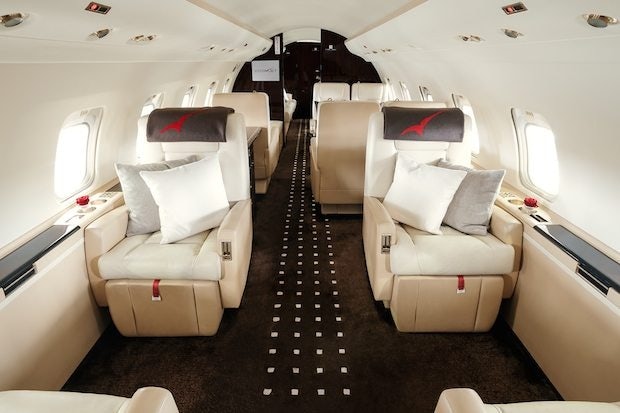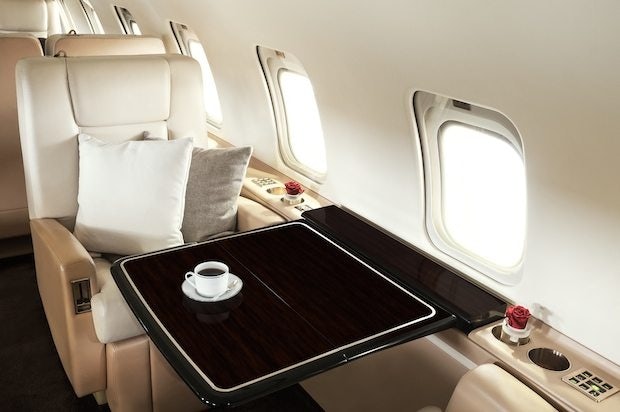
In a step that shows that China's private jet regulations may be on the road to loosening up, Swiss business-aviation company VistaJet has become the first international enterprise to register its charter aircraft, a Bombardier Challenger 850, in China. They have a second Bombardier aircraft on the way, giving more clients the opportunity to have more flexibility to fly domestically within the Chinese mainland. Vista Jet has long been offering flights for mainland Chinese clients, but prior to this year's agreement, they faced strict airspace and airport limitations. Founder Thomas Flohr listed this as a concern in 2011, when Hong Kong-based VistaJet was in the process of planning its entry into the Chinese mainland after three years of regularly flying passengers in and out of Hong Kong.
While some restrictions on airports and airspace still remain, China is moving toward investing in growing an aviation infrastructure that will help it catch up with Europe and the United States, said Ian Moore, VistaJet's chief commercial officer. This would not only benefit the increasing demand from the swelling number of Chinese billionaire businessmen wanting to charter a private jet, but could help nudge forward a global industry that has been affected in some areas by factors like China's slowing economy.
“What we've heard so far from Chinese authorities is that they are very interested in developing the airports in the region because the airports they do have are very busy at the moment,” he said.

VistaJet has partnered with China's business jet operating company, Apex Air, allowing them to have the flexibility to access airports they could not access before, including some that foreign airlines still don't have access to. The Challenger 850 can accommodate up to 14 passengers and every trip is customized to the VIP client's tastes. Flights can be arranged for service all across the world, including the Middle East and West Africa.
The last few years have seen increasing opportunities for the private aviation industry in China. With significantly fewer registered private aircraft compared to countries like the United States, companies like Berkshire Hathaway's NetJets have swooped in to serve the demand for aircraft rental and fractional ownership. However, the market for actually purchasing private jets has shrunk as a result of Chinese President Xi Jinping's anti-corruption campaign. As of March 2014, consumers owned and registered 300 private jets in China, but growth at that time was sluggish, according to an article the Global Times published early this year. Honeywell's 2014 Global Business Aviation Outlook cited “disappointing growth figures from several major regional economies, higher levels of regional tensions and government austerity initiatives” to account for a decrease in jet acquisitions in all of the Asia Pacific region since 2013.
VistaJet's services allow consumers unsure about committing to owning a private jet an alternative because they can sign a contract and be on the flight within 24 hours. Moore said that with the industry being where it is, people may want to think twice before risking their assets to start their own private jet company.
“If there's a time where people want to buy up five aircraft and put four of them in the charter market and keep one of them for themselves, that's a really difficult thing to make money on,” Moore said. “You really need to be a company with global scale and have the ability to maneuver aircraft around the world, and that's something that is not going to happen over night.”